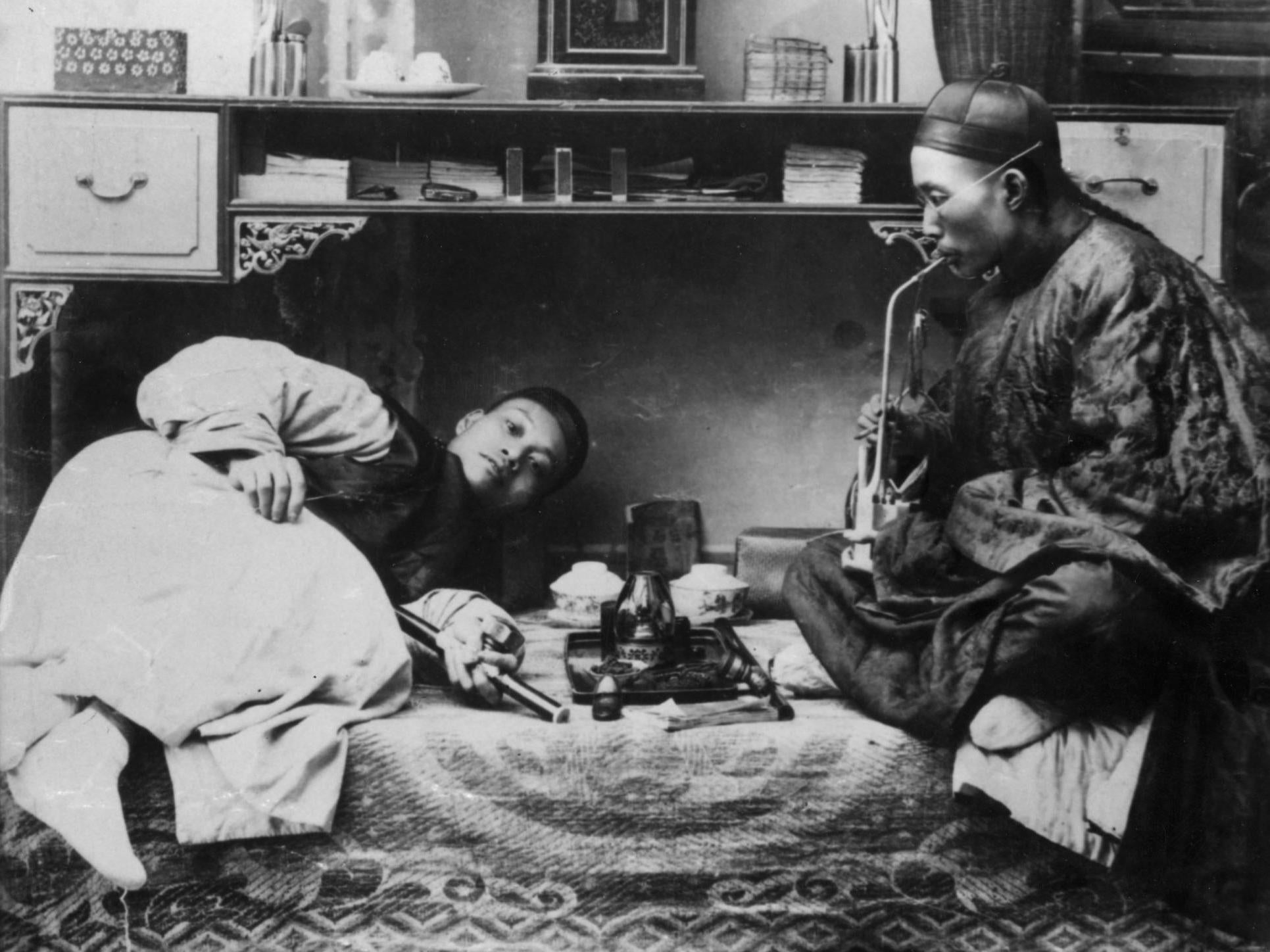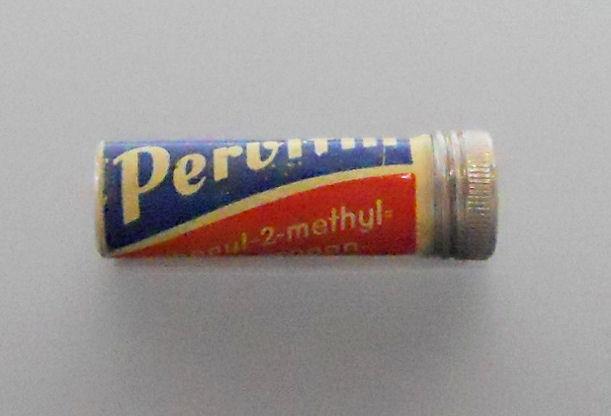Chemical conflict: We might want a drugs-free world but wars and soldiers depend on them
Cocaine, amphetamines, heroin, opioids – you name it, soldiers have used it to help them face the horrors of battle, writes Ian Hamilton


The war on drugs has been a multi-national priority... but we forget about drugs and war. A variety of drugs such as cocaine, amphetamines and opioids are used to enhance the ability of soldiers to fight, control civilians or even take over countries. The use of drugs in warfare pre-dates Napoleon’s era going back to conflicts in ancient Greece when opium was the drug of choice to soothe armies following their defeat. In the 19th century, Britain went to war with China in an attempt to protect its trading interest in opium.
Using psychoactive drugs in the arena of war shouldn’t really surprise us, given the psychological state required for a soldier to be willing and able to inflict harm on another. Some drugs facilitate the psychological state required to do this. Physical fighting requires stamina; amphetamines provide artificial energy and as a result are a popular choice of drug.
The methamphetamine pill Pervitin was used by the Nazis in the Second World War to extend the time soldiers were able to fight. Pervitin had the added benefit of helping soldiers manage the stress of war. These stimulants were an essential part of the tactic known as blitzkreig, or lightning speed, aimed at overwhelming the enemy with a swift offensive that produces disorganisation in the opposing forces. The Nazi army thus managed to sweep through Poland, Holland and France without suffering major casualties.
While drugs like amphetamines provide clear benefits, they are not without their problems; little thought was given to how dependent soldiers would become on these stimulants. After the first years of World War II, German soldiers had to be weaned off them. And reduced demand from Germany was replaced by interest from allied forces.
British, American and Japanese forces all used these types of amphetamines. State-sponsored suicide as evidenced by the teenage kamikaze pilots required these young men to overcome their basic instinct to stay alive. Although loyalty and belief in a cause and country might get you so far, it was the use of these amphetamines that amplified courage for these pilots.

Amphetamine use was rare in Japan prior to the war, but unfortunately this event appears to have instigated an enduring relationship – the drug continues to be the prime choice of the population. This is just one example of how wars introduce countries to drugs. In the case of Japan, the situation was likely fuelled by the surplus quantities left in the country after the war ended.
While drugs like amphetamines provide clear benefits, they are not without their problems; little thought was given to how dependent soldiers would become on these stimulants
It is not just soldiers who turn to drugs during conflict – civilians who wouldn’t go near drugs in times of peace can find themselves hooked too. Opiates, cocaine and amphetamines don’t just numb the psychological trauma of war, they are also effective appetite suppressants, a useful property when food is scarce. In many African countries where food security is an issue, conflicts add to the difficulty of supply and distribution of food. Chemicals that reduce hunger without compromising physical or psychological ability are attractive for obvious reasons.

The use of amphetamines in the Second World War marked the introduction of synthetic drugs to the battlefield. Recent conflicts have witnessed the popularity of synthetic drugs such as Tramadol, a synthetic opiate. There have been reports of widespread use of Tramadol by civilians and soldiers in African conflicts. It’s not clear which of these groups introduced the other to this drug.
Tramadol has escaped international control as it is deemed to have “low abuse potential”. This helps meet one of the two determinants of drug use in a population, namely availability and price. Tramadol meets the criteria of value; it is a cheap Indian import. Despite the risks of dependence, Tramadol serves a useful purpose in some African communities, such as in Gabon, where it can be found at market stalls selling rat poison. In addition to managing physical pain, it can quash hunger and artificially increase strength – desirable attributes for a population scraping a subsidence from a land that doesn’t always yield enough on which to survive.
It could be that drugs embedded in these communities were of easy reach to soldiers when various conflicts started. After all, the challenges of war overlap the battle for survival in a barren land.

While stimulants have an obvious role and benefit in warfare, drugs such as LSD and other hallucinogens might not be an obvious choice, given their ability to distort the senses. But hallucinogens have been used by terrorist groups including those involved in perpetrating the 2008 Mumbai attacks by terror group Lashkar-e-Taiba, in which 164 people died. In this case, a cocktail of drugs was consumed: cocaine, steroids and LSD, with each of these serving a distinct purpose. Cocaine and steroids were taken for energy and strength and LSD facilitated an altered reality that propped up a twisted view of the “enemy”.
Hallucinogens have been used by terrorist groups including those involved in perpetrating the Mumbai attacks. In this case a cocktail of drugs was consumed, cocaine, steroids and LSD, with each of these serving a distinct purpose
One benefit that has evolved from the relationship between drugs and war is the way they have informed addiction research, throwing up some unexpected results. For example, the availability of heroin during the Vietnam War resulted in American soldiers using the drug, no doubt to cope with the horrors they witnessed. Interestingly, when they finished serving and returned home, the majority were able to stop using opiates. The phenomenon challenges prevailing addiction theory of opiate dependency, which views heroin as highly addictive, with dependency developing after only a few doses. We still don’t fully understand the process and reasons why these American soldiers were able to regain control.
Conscripts are also a convenient group for researchers to investigate – the numbers available as participants provide a rich and convenient source. For example, 50,000 plus Swedish conscripts were involved in seminal research that first revealed the association between cannabis and psychosis.
However, army conscripts are not representative of the population as a whole, not least because they tend to be exclusively male, compounding continuing inattention to women in research.

There is increasing recognition of the impact war has on professional soldiers. No matter how well trained, nothing insulates them from the scenes they witness or the suffering they inflict on their fellow man. Drugs like ketamine show promise in the treatment of veterans with post-traumatic stress disorder who are also at risk of suicide. This exemplifies an interest more broadly in potential illegal drugs that can treat a range of health problems.
Another group exposed to drugs during times of conflict are political and economic migrants. Their experiences can leave them vulnerable to exploitation in the very countries they seek refuge and support. Even those refugees who don’t seek drugs to numb their experiences can be lured into petty drug dealing as a means of survival in the host country they thought would support and protect them.
There is increasing recognition of the impact war has on professional soldiers. No matter how well trained, nothing insulates them from the scenes they witness or the suffering they inflict on their fellow man
Host countries are ill-prepared to deal with these issues. In particular, there is often a reluctance to probe beyond physical complaints that have their origins in the psychological wounds inflicted by exposure to the horror of war. Language and cultural differences compound this, but investing in training and translation services is not beyond the means of wealthy states these refugees arrive in. Barriers to treatment delay recovery and healing – suffering is unnecessary, as we have treatment solutions. What’s lacking is political will.
Regimes use drugs as an excuse to deny some groups access to services. Young Rohingya refugees are excluded from education due to their ethnicity rather than behaviour. Given their experiences, it is little wonder they self-medicate with drugs like yaba, a mixture of caffeine and methamphetamine, sometimes referred to as crystal meth. This way of coping is used to stigmatise these groups and provide a rationale for limiting access to education and other basic services.

Refugees, war and drugs are also linked when political leaders threaten their “enemies”. In the ongoing war of economic sanctions between the United States and Iran, president Hassan Rouhani predicted that economic sanctions on Iran would unleash a “deluge” of drugs on the west.
As Iran borders Afghanistan, it has some control over the trafficking of opium en route to its final markets. Equally Iran acts as a host to many refugees fleeing various conflicts in the surrounding region. Grouping together refugees and drugs in this way does nothing for these people's status – it certainly does not imply empathy with their plight.
At a macro level, political and economic systems are penetrated by the drug market. A recent EU report estimates this shadow market has a turnover worth billions of euros annually. The report describes how brutal this market can be. In the pursuit of power and wealth, humans are trafficked, exploited and murdered. Living in these areas can feel like a civil war zone. One poll in the Netherlands found 59 per cent of respondents believed they are living in a “narco-state”.

Across the world, there are examples of how regions or countries have been corrupted by the multi-billion dollar illegal drug trade. All the components of supply and distribution are facilitated by those who control borders and customs. Even if a well-intentioned politician or government attempts to thwart the trade they are often no match for the nimble and adaptable market. An occasional glimpse into the mechanics of these shadow infrastructures and the detail of how they operate is provided on the rare occasion that a general rather than foot soldier is detained – like El Chapo, the Mexican king pin.
The ideology of the war on drugs has failed despite the billions spent trying to disrupt drug supply and distribution internationally. Still, the United Nations continues chasing the fantasy of a drug-free world. Paradoxically, the same member states that sign up to this declaration are just as inclined to use psychoactive drugs to give their armies an edge in the competitive arena of war. As with individual addiction, the first step to change is admitting you have a problem. But an international confession seems as elusive as ever.
Join our commenting forum
Join thought-provoking conversations, follow other Independent readers and see their replies
Comments
Bookmark popover
Removed from bookmarks